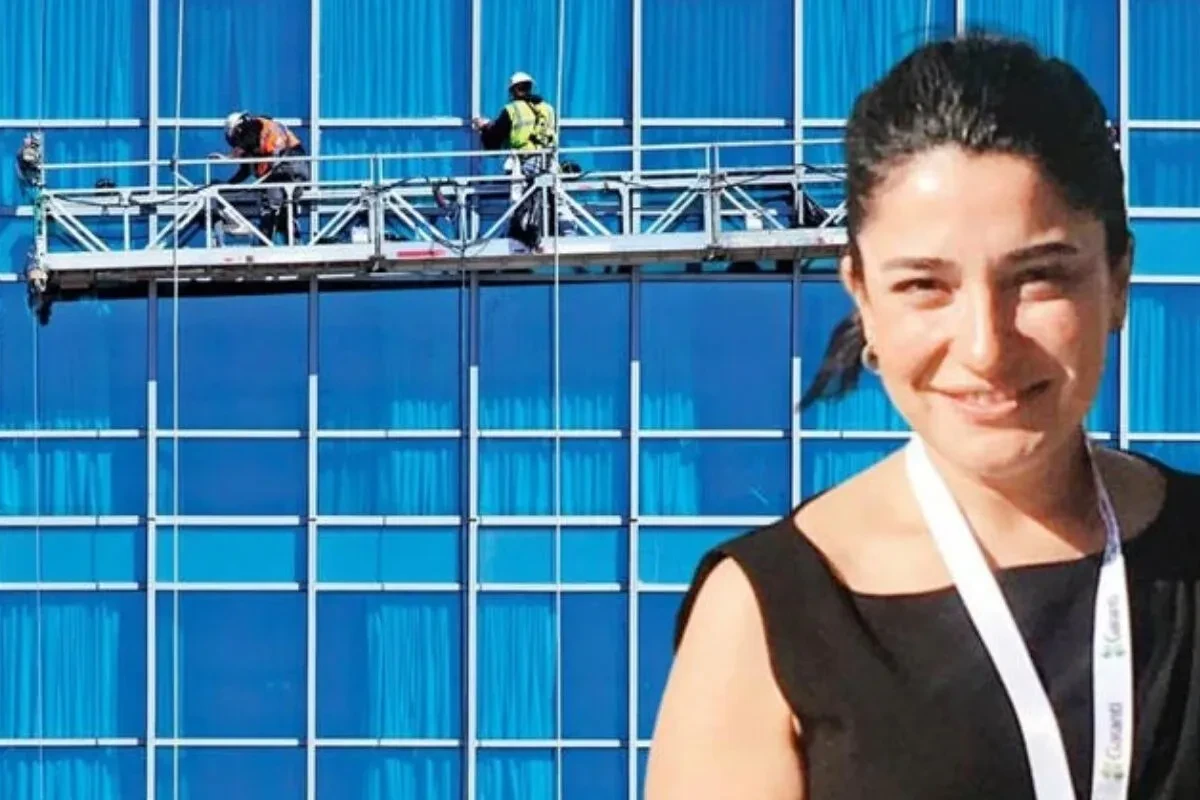From false racism allegations to truth: Istanbul murder case explained
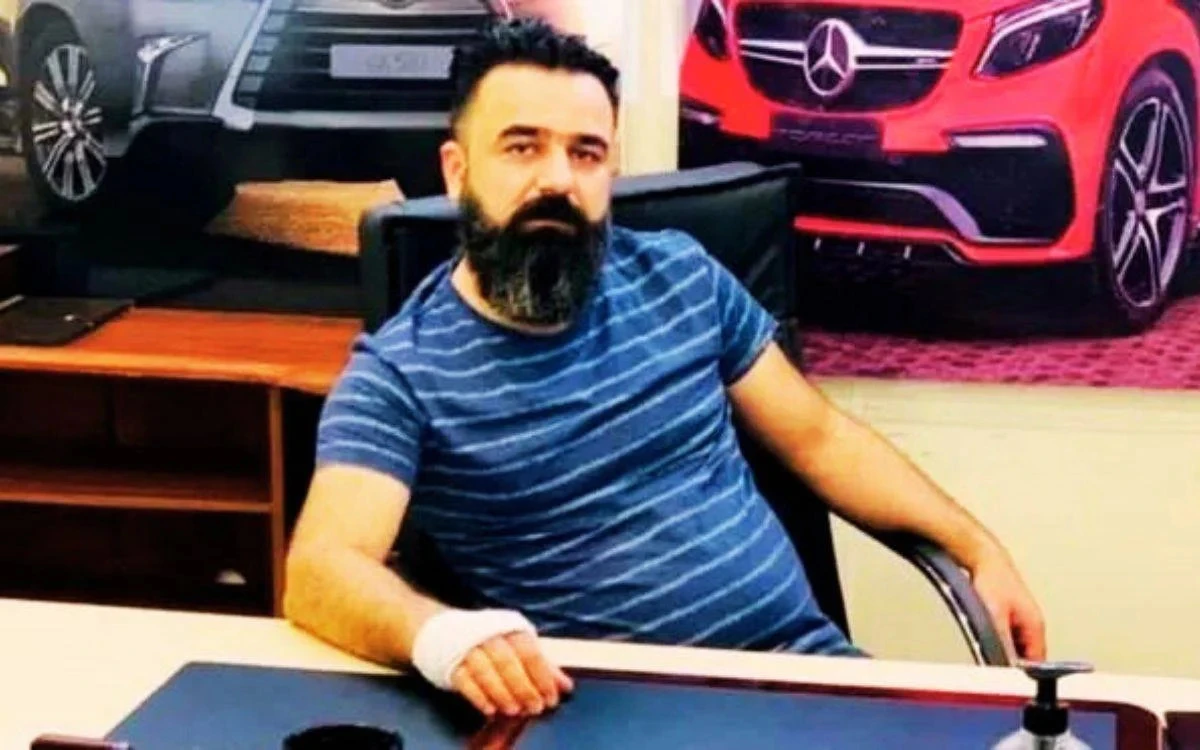 Hakim Lokman, who was attacked, via Bianet
Hakim Lokman, who was attacked, via Bianet
On August 31, 2024, at 11:00 AM, Hakim Lokman, an Iraqi citizen of Kurdish ethnicity residing in Duhok, Iraq was tragically killed while on a visit to Istanbul. Following his death, media outlets affiliated with the PKK terrorist organization, along with Rudaw, a media outlet closely associated with the Kurdistan Democratic Party (KDP) led by Masoud Barzani, quickly framed the incident as a racially motivated attack, claiming that Hakim was killed simply because he was speaking Kurdish. However, a thorough investigation by Turkish police revealed a different narrative. The perpetrators of the crime were also of Kurdish origin, exposing the falsehood of initial claims. This incident highlights the alarming extent to which certain groups manipulate facts to incite ethnic tensions, using accusations of racism as a weapon.
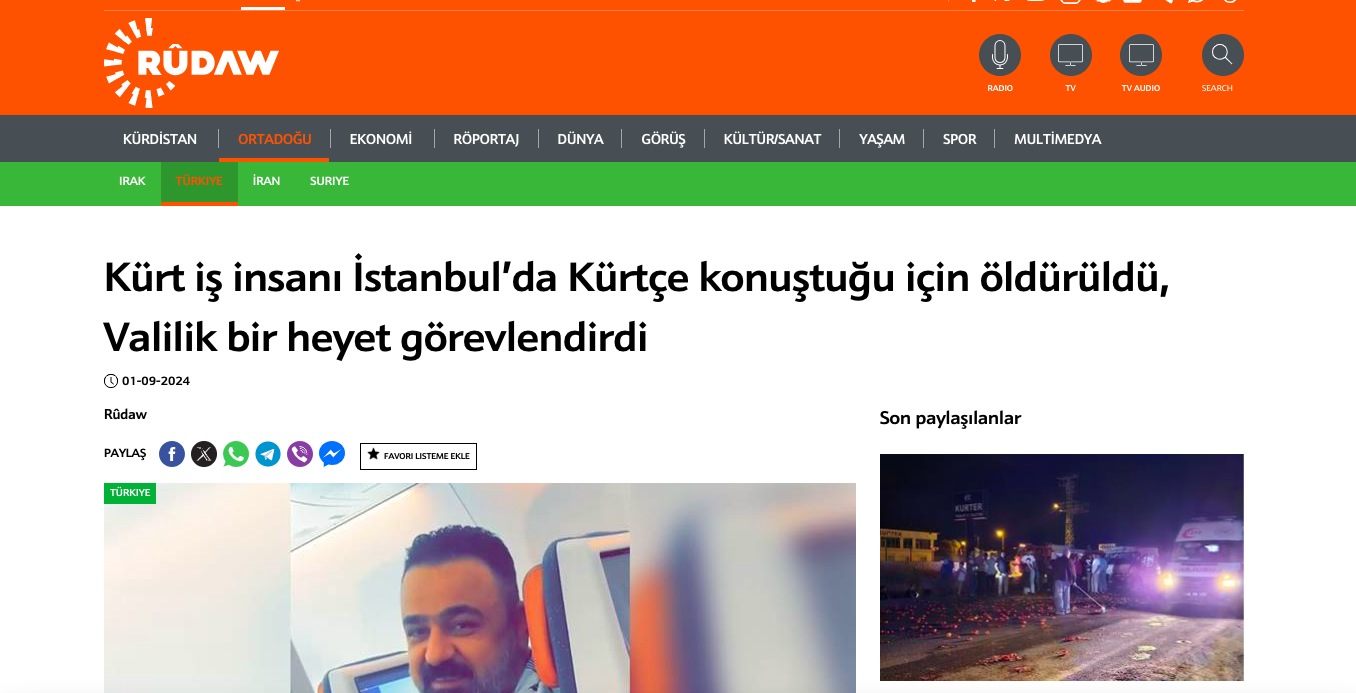
Step 1: Rudaw’s baseless claims of racism
The narrative began when Rudaw, the media outlet of the Kurdistan Democratic Party, published a report alleging that Hakim Lokman was murdered in Istanbul’s Aksaray district simply because he was speaking Kurdish.
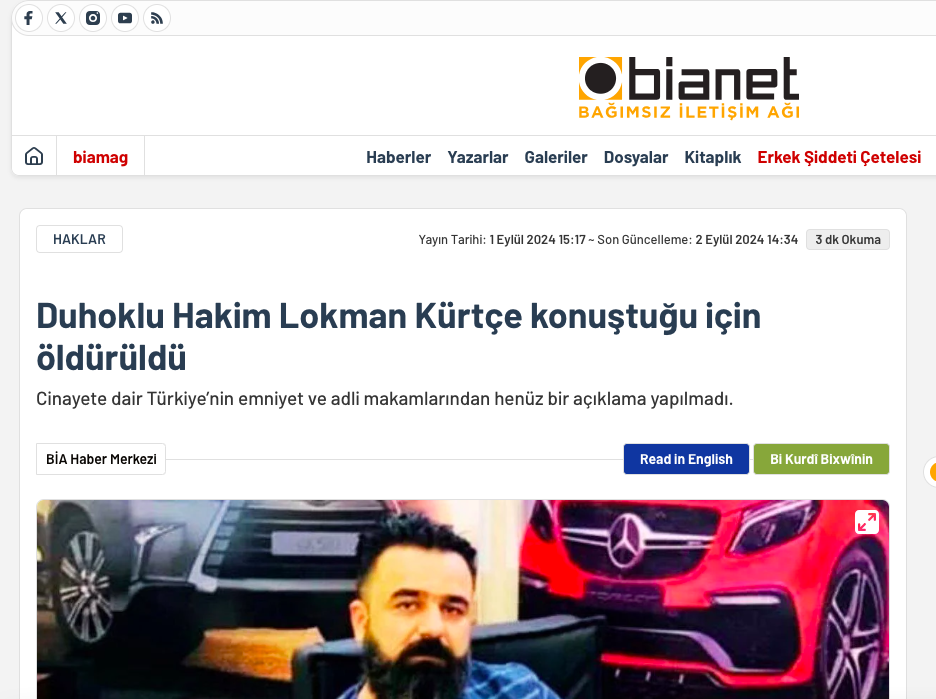
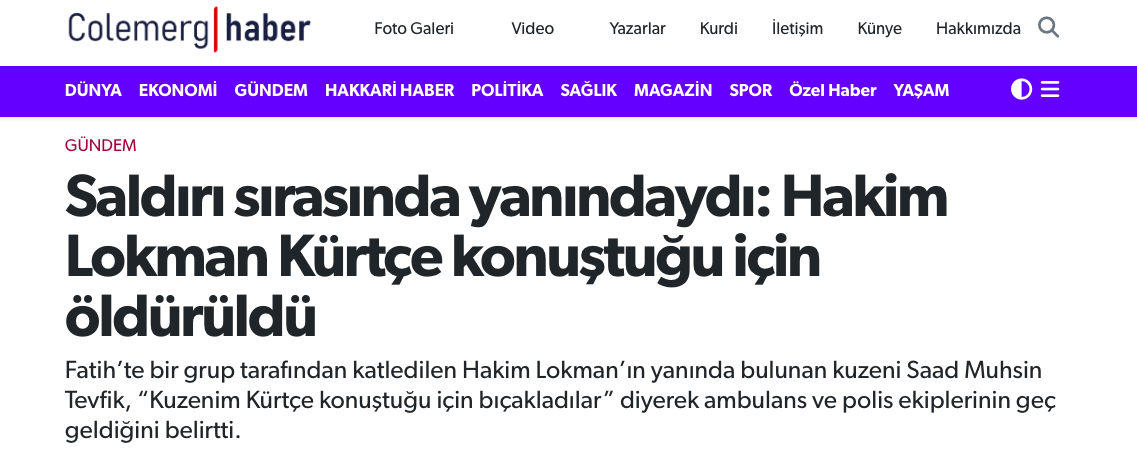
The story quickly spread, with other media outlets close to the PKK, such as Colemerg News, Bianet, and Mezopotamya News, amplifying the claims without verifying the facts. The unsubstantiated allegation of a racially motivated attack gained traction, drawing attention from various quarters, including the political arena.
Step 2: PKK-affiliated politicians bring the allegations to parliament
The unverified claims were not just limited to media reports; they were swiftly picked up by politicians affiliated with the PKK. Four members of the Democratic Regions Party (DEM), known for their close ties to the PKK, raised the issue in Turkish Parliament. They presented it as a clear case of racist violence, using the alleged murder of Hakim Lokman as evidence of widespread racism in Türkiye. The incident was portrayed as an example of systemic discrimination against Kurds, further fueling tensions.
Step 3: Politicians accuse Turks of racism
Sirri Sakik, a DEM Party MP from Agri, escalated the rhetoric by accusing Turks of racism in a tweet. He claimed, “Businessman Hakim Lokman from Duhok was stabbed to death in Istanbul for speaking Kurdish. It doesn’t matter what he believed or where he was from. Being Kurdish was enough. The real murderers are those who handed the streets to racist hunters of Kurds.”
This inflammatory tweet sparked a trend on Twitter, with hashtags and posts labeling Turks as racists, reaching a global audience. Rudaw continued to push this narrative, publishing further reports claiming that Kurds are targeted and killed by Turks solely because of their ethnicity.
There were tens of thousands of tweets complaining about Turks to the world.
The truth revealed: The perpetrators were also Kurdish
The turning point came when Turkish police, after reviewing security camera footage, identified the perpetrators of the crime. Contrary to initial reports, the killers were not Turkish nationalists but Kurdish brothers, H.O. and Z.O., born in Batman, a city with a significant Kurdish population. The investigation revealed that the motive for the murder was not racial but personal; Hakim Lokman had allegedly verbally harassed the women who were with the brothers at the time of the incident.
Manipulation of ethnic tensions
This incident is not an isolated one. Media outlets and individuals close to the PKK have a history of spreading manipulative falsehoods to stoke ethnic tensions and portray Kurds as victims of systematic racism. These narratives are often picked up and echoed by European media, which can unintentionally legitimize these baseless claims. The manipulation of such sensitive issues as racism not only distorts the truth but also risks inflaming ethnic divisions, with potentially dangerous consequences.
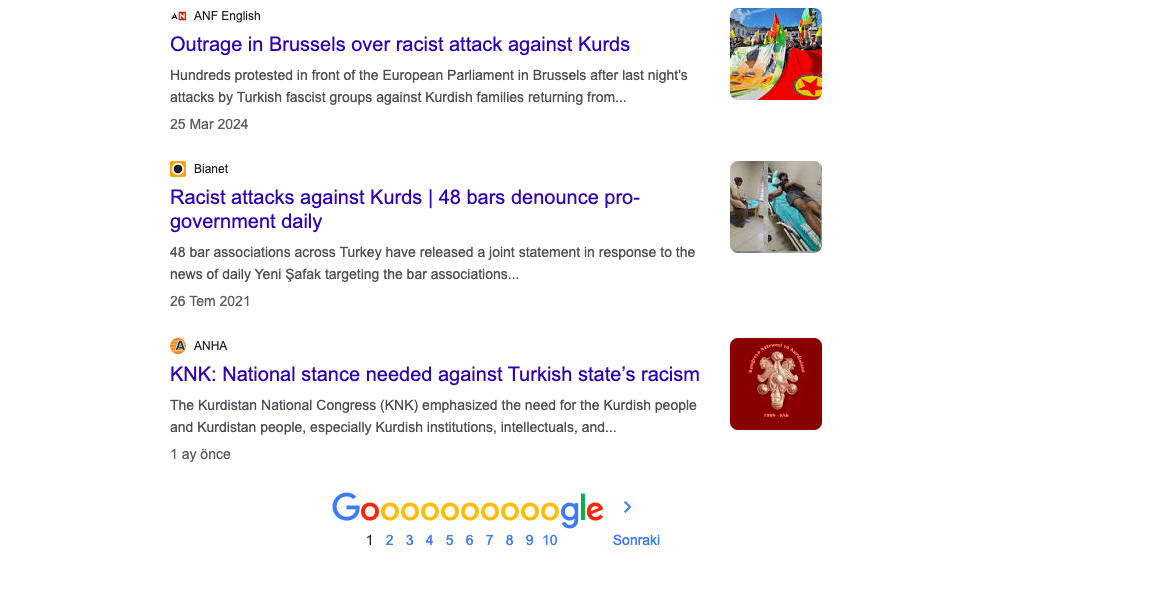
Historical parallels: A pattern of accusations
This case echoes past incidents where Turks have been falsely accused of racism by those with political agendas. The weaponization of such accusations has a long and troubling history, where manipulative narratives have been used to create a sense of victimhood and to vilify entire communities. The manipulation of facts for political gain can have severe repercussions, as it undermines social cohesion and exacerbates tensions.
Dangers of manipulative narratives
The case of Hakim Lokman’s murder and the subsequent false accusations highlight the dangers of using racism as a tool for political manipulation. It is crucial to approach such claims with a critical eye and to ensure that the truth is established before drawing conclusions. The manipulation of ethnic tensions is a serious issue that can have far-reaching consequences, and it is essential to resist the spread of unverified and potentially harmful narratives. This incident serves as a reminder of the importance of responsible journalism and the need to protect against the exploitation of sensitive issues for political ends.


